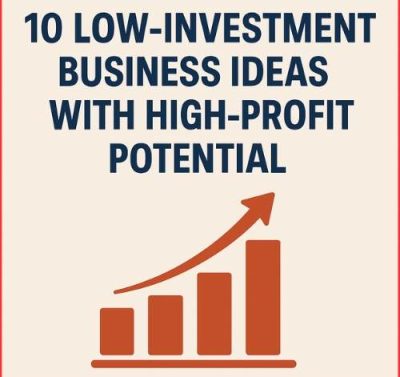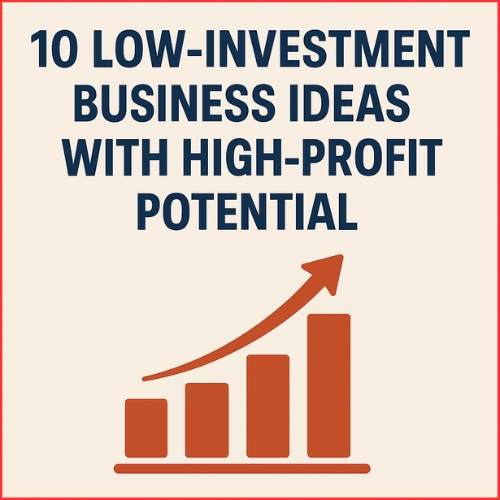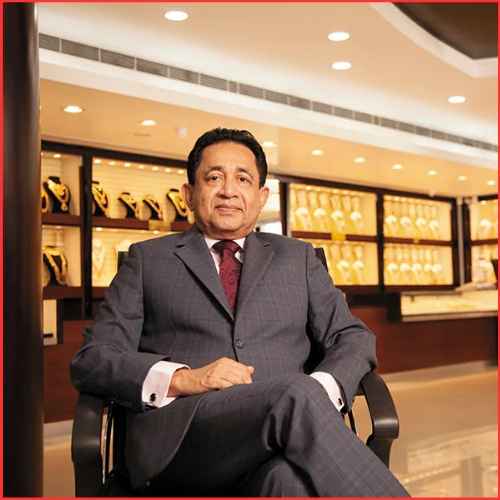In the 2015–2016 fiscal year, the Adani group, an Indian multinational company, earned around $12 billion in sales. Ahmedabad, Gujarat, India, is home to the company’s headquarters. With a wide range of businesses, including coal trading, coal mining, ports, power generation, multi-model logistics, renewable energy, gas distribution, and transmission, Adani is a leading global integrated infrastructure operator.
With Mundra serving as India’s largest commercial port, it is the country’s largest port developer and operator. Adani Group is one of the biggest business entities, with several ports, subsidiaries, industrial facilities, and corporate offices spread across different places. Overall, this corporate group employs 15,000+ and 50,000+ people.
Adani Power became India’s greatest power producer in April 2014 after adding the fourth unit, a 660-megawatt generator at its Tiroda Thermal Power Station. According to The Brand Trust Report 2015, Adani is the most reliable infrastructure brand in India. Coal is supplied to Bangladesh, China, and other Southeast Asian nations by the firm, which runs mines in Indonesia, Australia, and India. The largest dredger fleet in India was created in January 2018 by Adani Ports and SEZ Limited with the addition of machinery and equipment.
The Group’s mining, trade, gas distribution, photovoltaic, and agro operations are managed by Gautam Adani’s Adani Enterprises Limited. Adani Gas, a fully owned subsidiary of this corporation that conducts the gas distribution business, is another subsidiary controlled by this company. Adani Infrastructure and Developers Private Limited is in charge of overseeing the real estate sector’s operations. Industries represented in the current incubation portfolio include mining services, integrated coal management, transportation by road and rail, aviation, data centers, and defense.
Adani Ports and SEZ Limited
The largest private port enterprise and special economic zone in India is Adani Ports and Special Economic Zone Limited (APSEZ). Karan Adani is the CEO of this company. The corporation runs the ports of Dahej, Mundra, Hazira, Dhamra, Kattupalli, and Vizhinjam as well as logistics and port management.
Adani Power Limited
In India, the company operates and builds electricity plants. The business has the installed ability to create and maintain electricity plants all throughout India. The corporation manages the following subsidiaries of 10440 MN as well as four thermal power plants in India. This company is run by Gautam Adani and Rajesh S. Adani.
Adani Transmission Limited
The commissioning, management, and upkeep of the electric power transmission system are handled by Adani Transmission Limited, which was integrated in 2013. The holding business operates and maintains 400–765 kilovolt transmission lines totaling 8511 circuit kilometres.
The company’s subsidiaries include the following: Raipur Rajnandgaon Warora Transmission Limited, Sipat Transmission Limited, Chhattisgarh WR Transmission Limited, Maru Transmission Services Service Company Limited, and Hadoti Power Transmission Limited Service Limited.
Adani Green Energy Limited
Featuring a portfolio of solar and wind assets with an operational capacity of 2545 MW, this company is India’s largest listed pure-play renewable power generator. It is the largest publicly listed renewable energy company in India and intends to increase its infrastructure in order to produce 18 GW by 2025 and 25 GW by 2030.
Adani Gas Limited
It is India’s largest gas distribution company.
The Challenges That Adani Group Has To Deal With.
The Adani Group operates ports and other business divisions in numerous regions. It is crucial for them to be able to control personnel attendance and scheduling from one location. They have various time attendance policies at various sites as a result of their broad operation. It can be quite difficult to document an organization’s time-attendance policies. This is because different locations, departments, and people have different times, attendance, and leave policies.
Allegation of Fraud on Adani Group.
Financial business Hindenburg Research charged Adani and his companies of stock manipulation in a report titled “Adani Group: How The World’s 3rd Richest Man Is Pulling The Biggest Con In Business History” released in January 2023.
According to the research, the group is heavily indebted and has “precarious financial footing,” which led to a 3-7% decline in the value of the stocks of seven Adani firms that are publicly traded. Prior to the follow-on public offering of Adani Enterprises, which began on Friday, January 27, 2023, the report was made available.
Jugeshinder ‘Robbie’ Singh, the chief financial officer of the Adani Group, claimed that the timing of the report’s release was “brazen, mala fide intention” to harm the offering. On February 1st, 2023, the Adani Enterprises public offering was canceled.
The Adani Group said that the Hindenburg Research report was a “malicious combination of selective misinformation and stale”. According to Alison Frankel, a senior legal writer for Reuters, it is doubtful that the Adani Group will file a lawsuit against Hindenburg in the United States since American courts often view financial analysis as protected speech under American free speech rules.
Gautam Adani Scales Back His Ambitious Plans,After The Assault Of The Hindenburg.
According to insiders acquainted with the inner workings of the firm, Hindenburg’s charges of significant, years-long corporate fraud at the Adani group have caused a loss of market value of roughly $125 billion since January, prompting the billionaire to curtail ambitions to expand into other industries.
According to the people, who declined to be identified because the conversations are private, the group is leaving petrochemicals and is unlikely to proceed with a planned four-billion-dollar new land polyvinyl chloride (PVC) project in India. The group amassed one of the country’s biggest debt loads to fund new areas of growth.
According to the sources, it is also scaling back its plans to invest more heavily in road, steel, and aluminum projects.
Adani, who has been intimately linked to Indian Prime Minister Narendra Modi’s attempts to create the country, will instead return his attention to his primary projects. According to the population, these consist of electricity production, ports, and more recent green energy efforts.
The millionaire will conduct himself in a completely different manner even in these key areas. After selling family shares to pay off $2.15 billion in margin-linked, share-backed loans carried out to finance a series of acquisitions, according to the sources, Adani hopes to avoid utilizing this high-risk financing going forward.
It is now believed that the answer to regaining trust is to put debt-driven diversification on hold. According to those familiar with Adani’s plans, the group, which recently acquired a controlling interest in TV station New Delhi Television Ltd as the first step in creating what the tycoon once referred to as “the Financial Times or Al-Jazeera of India,” is now unlikely to make additional purchases in the media sector.
Michael Kugelman, director of the South Asia Institute at the Wilson Centre in Washington, asserts that there is “reason to think the company will pull back a little to concentrate on preventing further damage and other investor and broader investor concerns,” “Reputational factors are essential.”
Adani has debunked each of Hindenburg’s accusations, calling them an attack.
The Adani Group said it is actively looking to build its company “in a strategic and deliberate manner” by exploring opportunities in accordance with its core capabilities and strengths in a statement sent through email on Friday.
In response to a recent story in local media that the project has stalled, the Adani group stated last week that it anticipates finance for the greenfield coal-to-polyvinyl chloride project to be negotiated in the next six months. Some of its key partners were scared away by the unrest, so the withdrawal was not totally voluntary. A green hydrogen collaboration project with the organization has previously been postponed by Paris-based TotalEnergies SE. Given how heavily the business has spent in the growth of India’s electrical infrastructure, Adani also decided not to compete for a stake in the state-backed energy trader PTC India Ltd. in February and gave up plans to buy a coal mine in central India.
The opposition Congress Party has claimed that Adani benefited from preferential treatment from the government as a result of the short seller’s claims, making the tycoon’s connection with Modi and the government fair game. Rahul Gandhi, the head of the Congress, was abruptly fired from his position as an MP last week, which he claims was punishment for questioning Adani’s connections to Modi.
Credit rating agencies are constantly watching Adani’s behavior. The group’s ratings on Adani businesses have negative risks, according to S&P Global Ratings, which listed a long list of reasons for this earlier this month. These include the possibility that Adani would have limited access to funds and the possibility that an investigation may turn up “serious wrongdoing.” A commission to look into Hindenburg’s claims has been formed by the Supreme Court of India.
Abhishek Jain, head of research at Mumbai-based brokerage Arihant Capital Markets Ltd, which has advised clients on Adani-related equities, noted that sentiment is against Adani in addition to substantially rising refinancing costs and that “the risk premium will be certainly higher.” To win back investors’ trust, the firm is doing all within its power.
Conclusion
In conclusion, the current dispute between Adani and Hindenburg is a complicated matter that underlines the difficulties confronted by businesses working in the modern global market. The future of the corporation might be significantly impacted by the claims against Adani, and the Hindenburg report has made headlines about the company.















